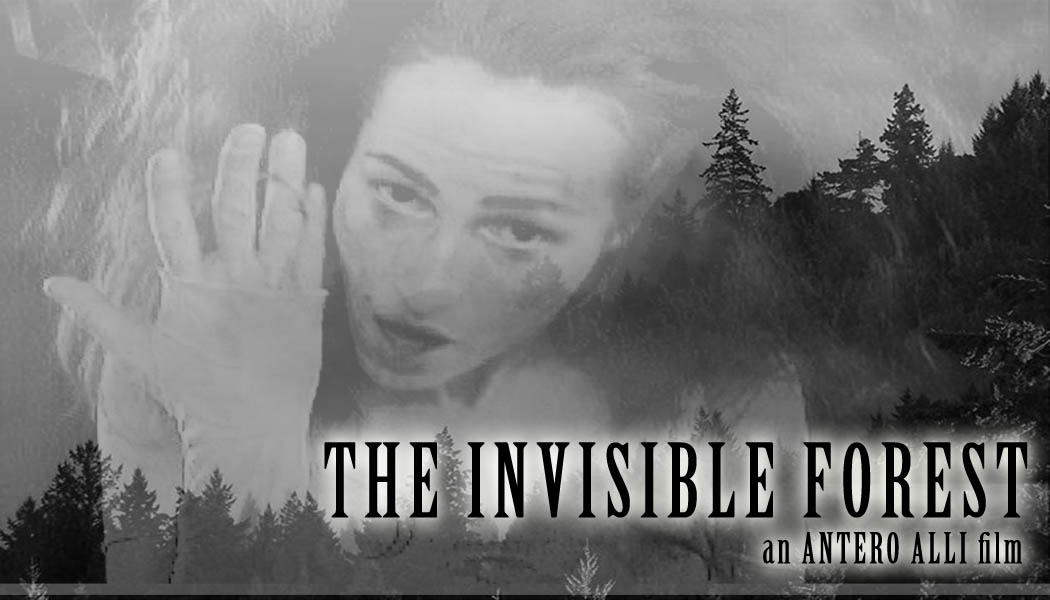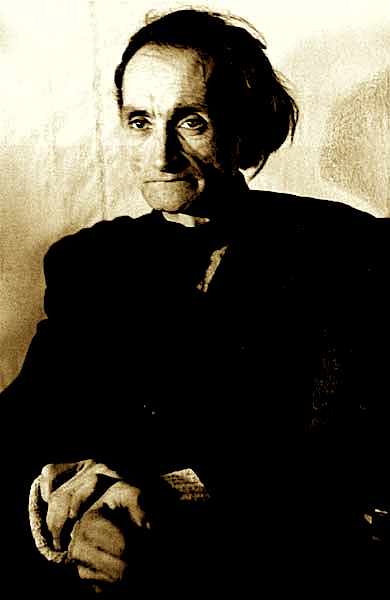A Deliberate Disorientation of the Senses
Underground Filmmaker Antero Alli interviewed
On the Making of "The Invisible Forest"
by Juanita Benedicto; April 29, 2008.
The film follows a theatre troupe as they camp out in a forest to enact French Surrealist Antonin Artaud's magic theatre of ghosts, gods and spirits. During their forest experiment Alex, their director, is haunted by a reoccurring dream where Artaud appears and mocks his ambitions. As these strange nightmares persist, Alex's sanity is pushed to its outer limits. He seeks professional help from a psychotherapist who suggests hypnosis to solve his psychic problem. Under hypnotic regression, Alex traverses the internal landscape of the subconscious and enters a labyrinth of dreams and memories that are not entirely his own. In the exchange below, I interviewed Antero about the making of the film and its mystical themes. -- Juanita Benedicto, Lane Community College Librarian; Eugene, Oregon.
JB: How does the spirit of Antonin Artaud inform "The Invisible Forest"?
AA: As a theatre artist and filmmaker, I include the writings of French Surrealist playwright Antonin Artaud amongst my very earliest influences and inspirations. I find his ideas for revitalizing the theatre both thrilling and revolutionary. But his ideas are not easy to assimilate as they are often delivered with a great force of disturbance or shock. Though I have always wanted to create a vehicle -- a stageplay or a film -- for his ideas, I could never find any tangible ways to manifest the highly abstract nature of his visions. And then one day, inspiration hit and "The Invisible Forest" was born. I would introduce his ideas in the context of a dream where Artaud appears to a theatre director who, in waking life, is attempting to materialize Artaud's vision. By using the convention of a cinematic dreamscape, I felt I could give form and substance to the spirit of Antonin Artaud.
JB: What does the title, "The Invisible Forest", signify?
AA: "The Invisible Forest" has a literal and a psychological meaning for me. Psychologically it refers to the internal landscape of the subconscious, where all manner of complexes, fantasies and fears feed and thrive. Spiritually, it also represents the home of the soul. Literally, the invisible forest is made up of the civilizations of microbes and other living entities feeding and thriving in and under the bed of any real forest...the subconscious life of the forest.
JB: You took some risks with the making of the movie, didn't you? For instance, there was no script. How did you manage the telling of a story without a script?
AA: As a filmmaker, I was in a rut and it was time to take a risk. I needed to do something I had never done before. So I chose to make this film without the safety net of a script and instead, find the story in the post-production editing process. This is actually common practice in the making of documentaries and though "The Invisible Forest" isn't a straight documentary, there are many journalistic elements in it. For example, in the film I play a theatre director who trains his actors to go out to the forest for certain theatrical experiments. In real life, I am theatre director who trains his actors to go out to the forest for certain theatrical experiments.
All the footage that was shot in the forest was what we also were trained to do. In these forest scenes we also borrowed excerpts from two of Shakespeare's plays, "Romeo and Juliet" and "The Tempest" and Artaud's "New Revelations of Being". I then added fictional scenes where my character visits a hypnotherapist to help him stop the nightmares causing him anxiety. These scenes were also improvised. And so even though there was no actual screenplay, these small script elements and structured improvisations helped to shape the story. The heart and soul of the story emerged visually and musically as I reviewed the twenty-plus hours of footage while listening to the songs my wife Sylvi composed for the soundtrack. The story was embedded in the footage itself, in the very actions we performed.
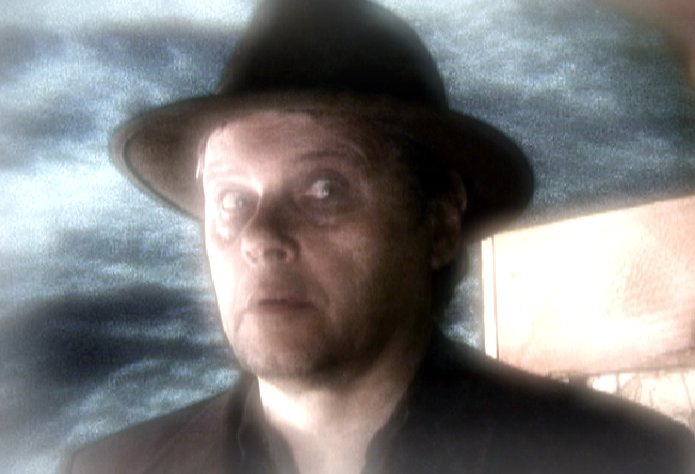
Antero Alli as "ALEX in the dreamtime"
JB: What other risks did you take?
AA: Maybe the biggest risk for me personally was taking on the lead role of Alex. Though I have played bit parts in the films of others and in my own, I have never taken on the responsibility of carrying a feature until now. Since I was also directing the film, my responsibilities doubled, maybe tripled. I think it was also a big risk to make a feature-length work that was so non-linear and dream-like in its free association of images, sounds and symbols. To me, it comes off as much a dream as it does a film and I think it works as both. Judging from audience response so far, these gambles have paid off.
JB: In one of the scenes, Alex, the main character, announces "My self image is that I am nothing. It's not a problem. I like being nothing." What does he mean by that? Being nothing?
AA: This point of zero self-image is an important one. Alex enters therapy in a delirious state of sleep-deprivation. He is there in the desperate hope that he can get some relief from a reoccurring nightmare. When the therapist asks him to describe his self-image, Alex is genuinely confounded. In his current state, Alex cannot find any one image to describe himself or to identify with. He expresses hostility and defiance to the therapist when he says, "I am nothing. It's not a problem. I like being nothing." He is telling the truth, his truth in that moment, and he has adapted to that truth as a reality. This reminds me of something Phillip K. Dick said about reality, "Reality is that which, when you stop believing in it, doesn't go away." Alex's lack of self-image represents a reality that won't go away and this leaves him with the experience of not being anything, of being nothing. What does it mean to be nothing ? It means that, without any self-imposed images or ideas limiting your experience, you are completely open to the cosmos.
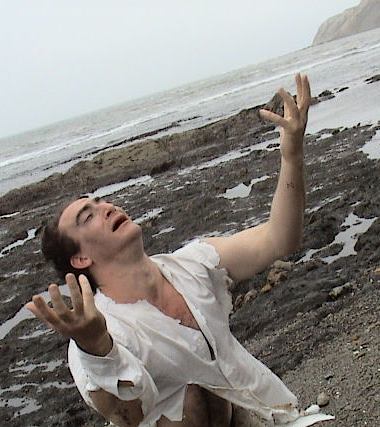
Nick Walker as "ID SAVANT" in "The Invisible Forest"
JB: This is your 11th feature-length work. Your work is regarded as avant-garde, certainly not for the masses. How do you find your audiences relate to your films?
AA: I am well aware that maybe only 10% of the populace will show any interest in my films but I don't worry about that. My audience eventually finds me. I have no mainstream ambitions or any Hollywood dreams to fulfill. My aim is to be true to myself, make the best films I want to make and stay close to my deepest sources of inspiration and love. Most of those who see my films in the limited arthouse runs they appear in, or on DVD, have shown genuine interest and warmth. They do not come to my films for sex, car chases or violence but for a more poetic vision of life, the possibility of insight into the human condition and maybe even something approaching mystical experience.
If you view cinema as a drug, most movies out there act on the audience like tranquilizers or crack cocaine, either lulling them into false comfort or spiking their nerves with fear. My films -- and those by filmmakers I adore -- are 100% organic user-friendly hallucinogens. My favorite filmmakers include Andrei Tarkovsky, David Lynch, Werner Herzog, Alexandro Jodorowsky, Guy Maddin, Wim Wenders, and Lars von Trier.
JB: What do you hope we take from "The Invisible Forest"?
AA: A well-nourished and stimulated imagination.
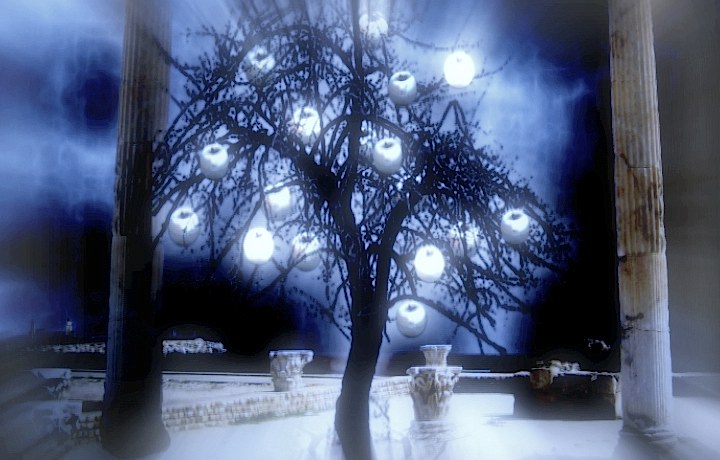
The silver apples of "The Invisible Forest"
Thursday June 5, 9pm: DIVA Center, Eugene OR. $5.
Friday June 6, 9:30pm: Hollywood Theatre, Portland OR. $6.
Sunday June 15, 2pm: NW Film Forum, Seattle WA. $8
Wed. June 18, 8:30pm: Pickford Cinema, Bellingham WA $7.50
Friday June 27, 7pm: Shiny Object, West Sacramento. $5.
Filmmaker in person at all screenings.
"THE INVISIBLE FOREST" reviewed
by Cedrus Monte, Jungian Analyst. Zurich Switzerland. 5/12/08.
"THE INVISIBLE FOREST" main page
SYNOPSIS, TRAILER, PIX, CREDITS, DIRECTOR'S BLOG
Antero Alli, filmography
list of completed works with clips
